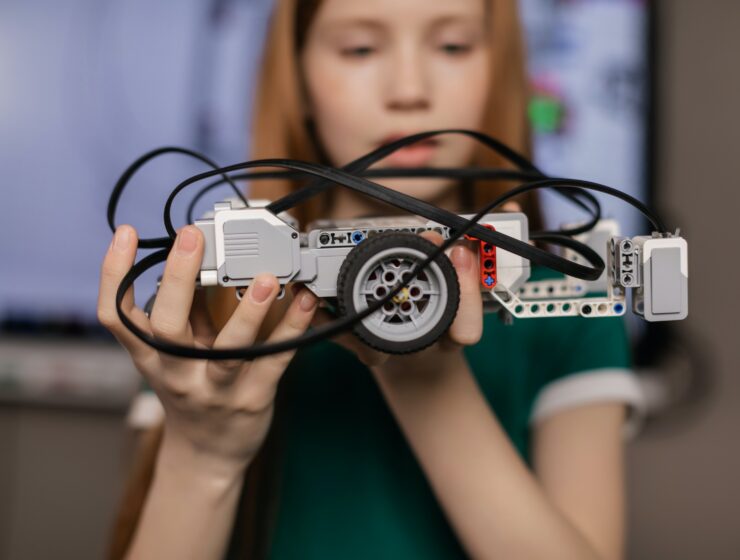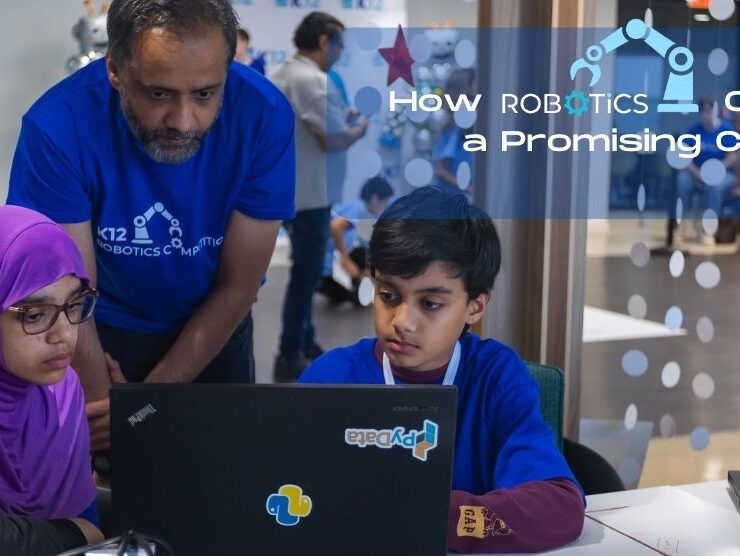In today’s rapidly advancing world, where technology and innovation are at the forefront of every industry, fostering an early interest in STEM (Science, Technology, Engineering, and Mathematics) subjects has become crucial. STEM education in early childhood offers a myriad of benefits that extend far beyond the classroom. In this blog, we’ll explore the compelling advantages of introducing STEM to young minds, setting the stage for a lifetime of curiosity, problem-solving, and creativity.
Fosters Critical Thinking and Problem-Solving Skills

STEM activities encourage children to become inquisitive thinkers. When they encounter a problem, whether it’s figuring out how to balance a stack of blocks or why a plant is wilting, they are encouraged to think critically. They learn to ask questions, develop hypotheses, and test their ideas through hands-on experiments. This process of inquiry and exploration forms the basis of critical thinking and problem-solving skills that will serve them well throughout their lives.
Promotes Creativity and Innovation

STEM education isn’t just about memorizing facts and formulas; it’s about encouraging creativity and innovation. When children engage in STEM projects, they are often presented with open-ended challenges that require them to think creatively. Whether it’s designing a unique solution to a engineering problem or conducting a scientific experiment with unexpected results, STEM fosters a mindset of creativity and the ability to approach challenges from different angles.
Encourages a Growth Mindset

One of the most valuable lessons from STEM education is the concept of a growth mindset. Children learn that making mistakes is a natural part of the learning process, and these mistakes can lead to discoveries. This mindset shift from a fear of failure to an embrace of challenges and learning opportunities is a critical life skill. It encourages resilience and the belief that with effort and persistence, they can improve and overcome obstacles.
Prepares for Future Careers

As technology continues to advance, STEM-related careers are on the rise. Early exposure to STEM concepts not only prepares children for future job opportunities but also equips them with the skills needed to adapt to rapidly changing technologies. The problem-solving, analytical, and technical skills gained through STEM education are highly transferable to a wide range of careers.
Enhances Communication Skills
STEM activities often involve teamwork and collaboration. Children learn to communicate their ideas, share their thought processes, and work effectively with peers. These communication skills are essential in any field, as they enable individuals to convey their ideas, listen to others, and collaborate on projects. Effective communication is a valuable skill that extends beyond the classroom and into all aspects of life.
Teaches Environmental Awareness

Many STEM activities incorporate lessons on environmental issues, sustainability, and conservation. Through these activities, children develop an understanding of the impact of human actions on the environment. They learn to appreciate the natural world and gain the knowledge to make informed, environmentally responsible decisions as they grow older.
Boosts Confidence and Self-Esteem
Accomplishing STEM projects, whether it’s building a simple machine or conducting a science experiment, instills a sense of accomplishment in children. They see that their efforts lead to tangible results, which boosts their confidence and self-esteem. This newfound confidence can empower them to tackle more complex challenges in the future, both academically and in their personal lives.
Encourages Curiosity and a Love for Learning

STEM activities are inherently engaging and hands-on. They spark children’s natural curiosity and fuel their love for learning. When learning is enjoyable and intriguing, children become lifelong learners who actively seek out knowledge and explore new ideas. This curiosity becomes a driving force in their education, motivating them to delve deeper into STEM subjects and beyond.
STEM education in early childhood is not just about academic achievement; it’s about nurturing well-rounded individuals who possess critical thinking skills, creativity, resilience, and a lifelong passion for learning. These benefits extend far beyond the classroom, shaping the future leaders, innovators, and problem solvers who will contribute to a better world.




